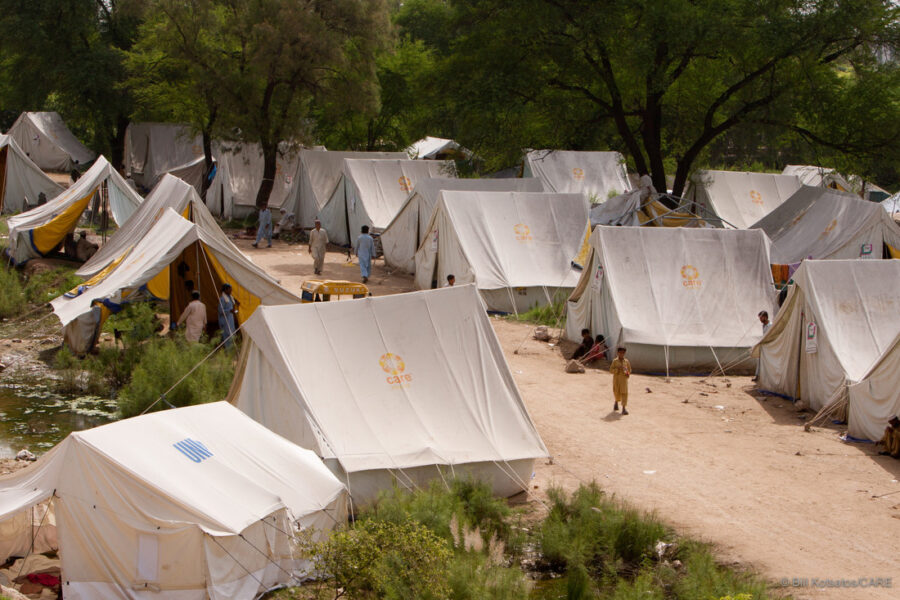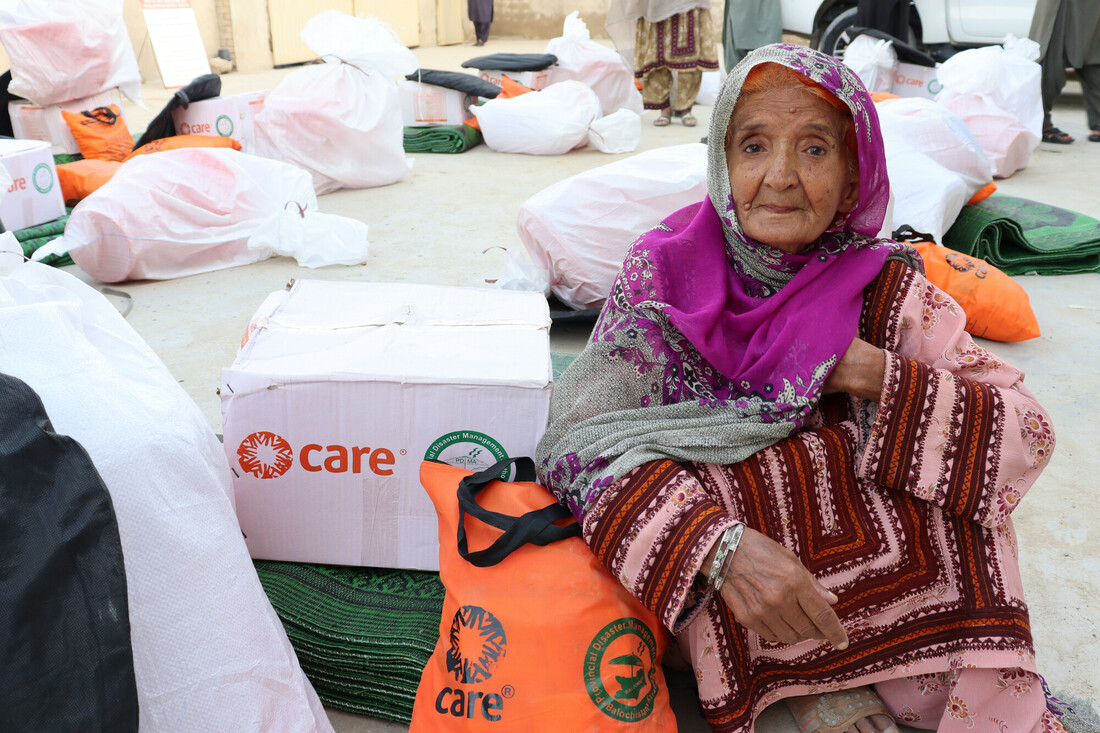Devastating floods the latest in a decade of disasters.
In 2022, the Government of Pakistan declared a National Emergency in response to the crisis which affected more than 33 million people.
With more than a third of the country under water, CARE and our partners began distributing much needed relief items including tents, shelter and sanitation equipment as well as everyday essentials like menstrual hygiene items.
The floods came after Pakistan faced a decade of floods, cyclones, earthquakes and displacement. Largely dependent on small-scale agriculture, Pakistan is especially vulnerable to extreme weather brought about by climate change.
Almost half of the population lives below the poverty line, and the country ranks among the lowest globally in terms of fair distribution of resources and opportunities between men and women.
CARE works in some of the most remote and logistically challenging areas of Pakistan to help address the underlying causes of poverty, supporting women by working with local partners to provide better access to health services and increase the understanding of reproductive, maternal and child health.
Fast Facts
Population: 225 million (2020)
Life expectancy: 67 years (66 years male, 68 years female) (2020)
Infant mortality: 54 deaths/1,000 live births (2020)
Under-5 mortality: 65 deaths/1,000 live births (2020)
Maternal mortality: 250 deaths/100,000 live births (2020)
Adult literacy rate: 58% (69% male, 46% female) (2019)
Access to safe drinking water: 36% (40% urban, 33% rural) (2020)
Access to basic sanitation: 68% (82% urban, 60% rural) (2020)
Labour force participation rate: 52.7% (80.7% male, 20.2% female) (2020)
Percentage of national parliament seats held by women: 20% (2021)
GDP per capita: $5,877 (2021)
Source: World Bank
Years of flooding
In 2010 Pakistan experienced the worst floods in living memory. Around 20 million people were affected – more than the 2004 tsunami, the 2005 Kashmir earthquake and the Haiti earthquake combined. In 2011, more flooding affected 9 million people.
In 2012, monsoon rains in southern Pakistan devastated local communities, destroying homes and crops and affecting five million people. Within days, the crisis saw more than 297,000 families in need of emergency shelter.
In response to these disasters, CARE and our partners delivered emergency food, clean water, shelter, medical services, mosquito nets, blankets, and financial support. We provided free medical assistance and skills training to vulnerable communities, especially mothers and children. In the years that followed, we have continued to help communities recover and rebuild.

Donate now
Support our ongoing work to create a more equal world.
Your donation can help end extreme poverty and give people the means to build a better future for themselves in countries like Pakistan.
For those living in extreme poverty, your support brings education and training, healthcare and clean water, nutritious food, and new ways to earn an income. And in times of crisis, you help us deliver emergency relief. Please make a lifesaving donation today.
Lessons and Impact
We analyse and evaluate our projects to monitor results and learn how we can improve programs. Below is a selection of recent reports on CARE’s work in Pakistan.
CARE International: Advocating for Improved Maternal Health Policy and Practice for Adolescent Girls and Young Mothers: Key Achievements, Lessons Learned and Way Forward Recommendations (2013)
CARE Canada: Assessment of Private Sector Partnerships and the Role of Cash Grants in Emergency’ (re: 2010 floods)
Evaluation reports: CARE’s Electronic Evaluation Library

